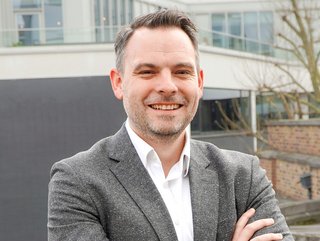Telefónica Tech to reduce ewaste with upcycling initiative

Telefónica Tech UK&I has successfully implemented a secure solution for repurposing and recycling IT assets at BMI, bringing substantial environmental benefits.
Promoting the circular economy by repurposing, reselling and reusing IT equipment, the service allows BMI to safely dispose of outdated IT assets while also recovering their original investment value.
Reducing ewaste and CO2 emissions
Over the next two years, Telefónica Tech UK&I will use the service to recycle, repurpose or resell 3,000 BMI units. This will result in significant environmental savings, including the reduction of 1mn kg of CO2 emissions, 76 million litres of associated water consumption and the conservation of 4.8mn tonnes of mined earth.
Furthermore, this effort will prevent 6,000kgs of ewaste from ending up in landfills. To put reduction into perspective, it is equivalent to the distance travelled by an average family car for approximately 6.2mn kilometres.
“The latest World Economic Forum data puts the latest estimated annual figure of ewaste at 57.4bn tonnes. So, if you have a sustainability agenda, or starting to think about one, asset upcycling can be an effective way of helping you meet your goals,” says Mark Skelton, Chief Technology Officer at Telefónica Tech UK&I.
“Not only are you supporting the circular economy, but you are gaining value back from your original investment too. Our Lifecycle management approach enables our customers to manage their end-of-life assets in a secure and environmentally responsible manner.”
Clearing data safely
To comply with GDPR regulations, every asset undergoes thorough testing, evaluation, and documentation to ensure its safe disposal.
Any assets that fail the data removal tests are destroyed and shredded according to a 6mm standard to maintain their safety. Subsequently, the graded assets are either resold, utilised as spare parts, or completely transformed into new assets through re-engineering.
Under this initiative, the costs associated with processing are balanced by the value generated from the upcycled assets. Credits are then provided for future orders, which are used to support innovation projects.
This approach is distinct from asset recovery services where assets are simply taken away and destroyed without any value being returned to the original purchaser.
“BMI looks to integrate sustainability into all aspects of our practice, from the materials we use to the solutions we create,” says Antonio Bonillo, BMI’s Head of Technology. “That’s why this asset upcycling initiative is key to helping BMI take steps to improve sustainability throughout our organisation.”
The two businesses have also collaborated to build out a cloud-based desktop platform, which means Telefónica requires less equipment on premises, and more energy-efficient thin clients, as well as computing power from Azure, which has been carbon neutral since 2012. The software also gives teams across the globe greater flexibility to work efficiently, sustainably, and with greater control over their carbon footprint.






